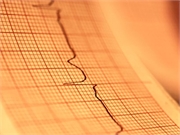FRIDAY, April 10, 2020 (HealthDay News) — For those with heart problems, home-based rehab can take the place of hospital-based cardiac rehabilitation during the current coronavirus pandemic, heart experts say.
“Home-based cardiac rehab is a solution to help provide cardiac rehabilitation to patients with heart disease in a home setting, and to help them survive and thrive during this challenging period of time,” said Dr. Randal Thomas. He’s a preventive cardiologist and medical director of the Mayo Clinic’s Cardiac Rehabilitation Program, in Rochester, Minn.
“Home-based cardiac rehabilitation is much more than just going for a walk at home,” Thomas said in a clinic news release. “It is a structured, standardized, evidence-based approach to apply all therapies — lifestyle, medication and otherwise — that are known to help people with heart disease do better, feel better and live longer.”
Mayo Clinic has used home-based cardiac rehab with a small number of patients over the years, but the coronavirus pandemic has made it necessary to transition all cardiac rehab to home-based settings in a matter of weeks.
If you qualify for cardiac rehab, ask your care provider if at-home rehabilitation is an option for you as well.
According to Thomas, there are many reasons why home-based cardiac rehab is so important right now.
A big advantage of home rehab is that it keeps patients out of the hospital. Home rehab also ensures that patients get cardiac rehab wherever they live, while social distancing from others, especially other older patients with heart disease.
In-home rehab also promotes healthier eating, which is helpful as most restaurants are closed, Thomas said.
Rehab is also good for mental and emotional health. Taking charge of your health can have a positive effect.
At-home rehab can also help you quit smoking. Not smoking lowers the risk of developing COVID-19 because smoking makes it easier for the virus to get into body cells. Smoking also damages lung tissues, making them easier to infect, he explained.
Home-based rehab connects patients with medical professionals who can help them through recovery after a heart attack or surgery.
Through in-person assessments, phone calls, online messaging, wearable monitoring devices and other approaches, cardiac rehabilitation professionals help guide heart patients through the same components of care, just as in a hospital-based program, Thomas said.
More information
For more on cardiac rehabilitation, head to the American Heart Association.
Copyright © 2026 HealthDay. All rights reserved.

